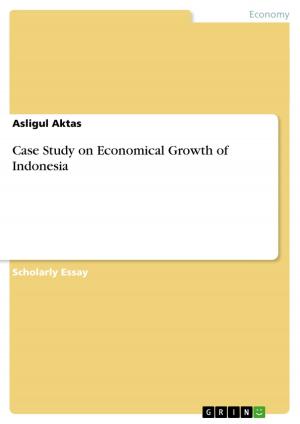How Can Journalists Better Contribute to the Fight Against HIV?
Journalists and HIV/AIDS and Malaria Coverage
Nonfiction, Reference & Language, Language Arts, Journalism| Author: | Muyanga Ziba | ISBN: | 9783668114593 |
| Publisher: | GRIN Verlag | Publication: | December 22, 2015 |
| Imprint: | GRIN Verlag | Language: | English |
| Author: | Muyanga Ziba |
| ISBN: | 9783668114593 |
| Publisher: | GRIN Verlag |
| Publication: | December 22, 2015 |
| Imprint: | GRIN Verlag |
| Language: | English |
Research Paper (postgraduate) from the year 2012 in the subject Communications - Journalism, Journalism Professions, , language: English, abstract: This study is a contribution to development in the field of journalism in Malawi and neighbouring countries of Malawi, Zambia and Tanzania, at a time of growing concern about the developmental challenges being posed by the spread of the HIV/AIDS pandemic in Southern Africa. For Malawi in particular, it examines the struggle against the pandemic that has been underway since 1993 and how the interventions to check its spread have included calls for projects and information that would lead to behaviour change and lowering of infection rates. The campaign along this line has targeted the media, among key stakeholders. To gauge the extent to which journalists are playing their role in the campaign in question, a survey was carried out in Malawi and then also in Zambia and Tanzania. This revealed that journalists in all the three countries covered are currently somewhat hampered in their advocacy of HIVAIDS issues, and that is due to several factors. These include the dearth of communication research in the region, as well as the related lack of relevant education and training opportunities for journalists. They also encompass the absence of laws granting journalists access to relevant government information about epidemiology; the culture of silence which surrounds the exchange of news about HIV/AIDS related deaths and competition in the media posed by popularity of stories about politics, economics and religion. As a way forward, it is proposed and recommended that journalists should be linked to projects that directly address the needs of local communities in the national campaign against HIV/AIDS. These would be projects like those which incorporated the citizen participation tradition, by empowering even the least respected members of the society. For the media, these include community radio stations, and vernacular newspapers. For people at village or grassroots level, these are important channels of information about HIV/AIDS and other major killer diseases, to which the common man is able to directly relate. The study also advances the need for a course or course module on Health Journalism to be offered by an appropriate school of journalism within the countries. Through such a course, journalists would be equipped with skills to enable them to cover HIV/AIDS issues effectively and comprehensively.
Research Paper (postgraduate) from the year 2012 in the subject Communications - Journalism, Journalism Professions, , language: English, abstract: This study is a contribution to development in the field of journalism in Malawi and neighbouring countries of Malawi, Zambia and Tanzania, at a time of growing concern about the developmental challenges being posed by the spread of the HIV/AIDS pandemic in Southern Africa. For Malawi in particular, it examines the struggle against the pandemic that has been underway since 1993 and how the interventions to check its spread have included calls for projects and information that would lead to behaviour change and lowering of infection rates. The campaign along this line has targeted the media, among key stakeholders. To gauge the extent to which journalists are playing their role in the campaign in question, a survey was carried out in Malawi and then also in Zambia and Tanzania. This revealed that journalists in all the three countries covered are currently somewhat hampered in their advocacy of HIVAIDS issues, and that is due to several factors. These include the dearth of communication research in the region, as well as the related lack of relevant education and training opportunities for journalists. They also encompass the absence of laws granting journalists access to relevant government information about epidemiology; the culture of silence which surrounds the exchange of news about HIV/AIDS related deaths and competition in the media posed by popularity of stories about politics, economics and religion. As a way forward, it is proposed and recommended that journalists should be linked to projects that directly address the needs of local communities in the national campaign against HIV/AIDS. These would be projects like those which incorporated the citizen participation tradition, by empowering even the least respected members of the society. For the media, these include community radio stations, and vernacular newspapers. For people at village or grassroots level, these are important channels of information about HIV/AIDS and other major killer diseases, to which the common man is able to directly relate. The study also advances the need for a course or course module on Health Journalism to be offered by an appropriate school of journalism within the countries. Through such a course, journalists would be equipped with skills to enable them to cover HIV/AIDS issues effectively and comprehensively.















